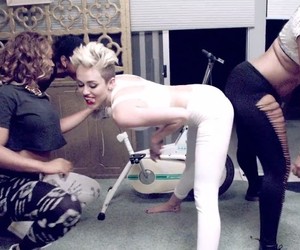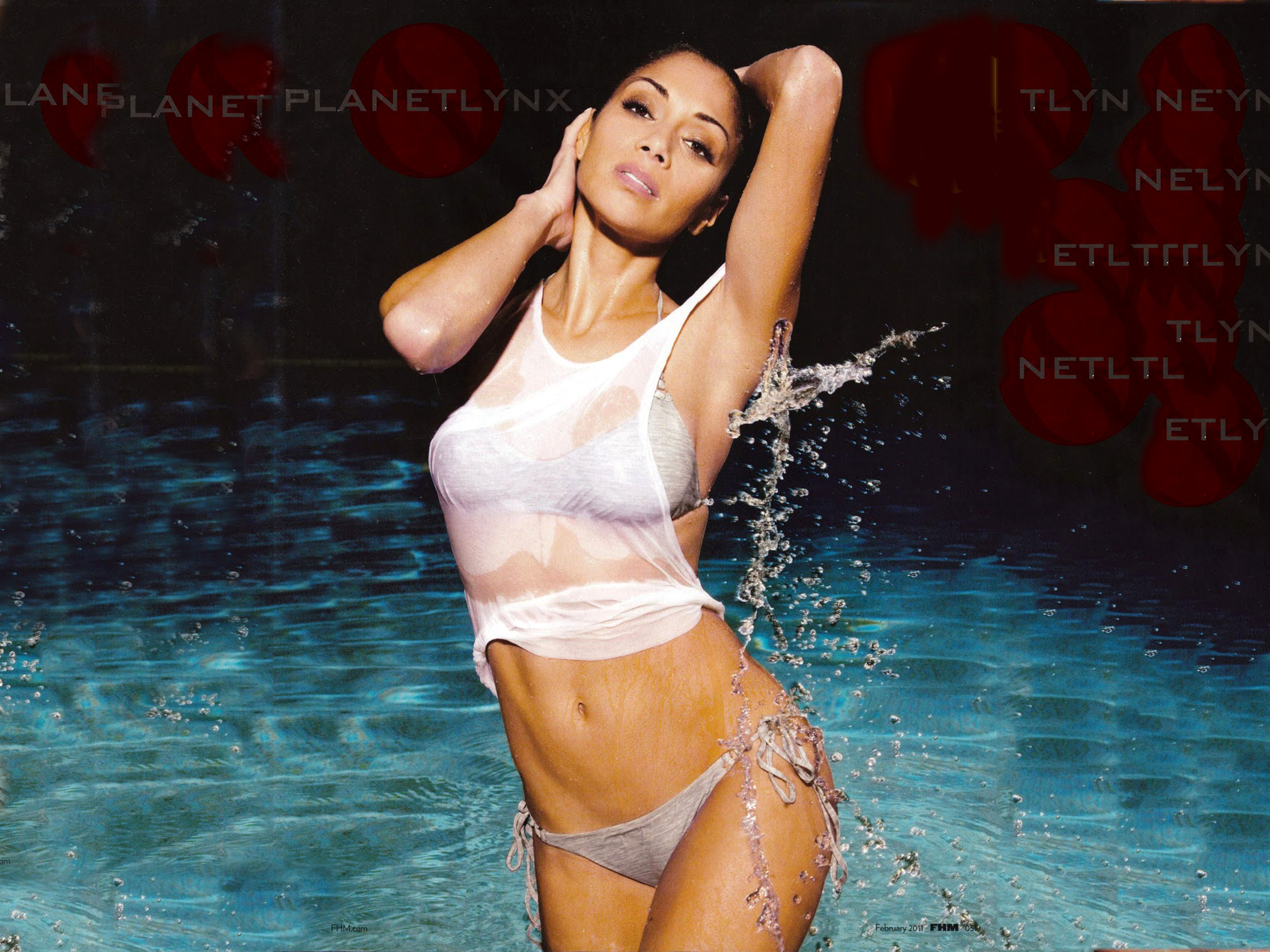Modern Pop Culture: Is it really okay?
Pop culture is (naturally) something that changes over time, sometimes quite drastically, as we have seen in recent decades, but does there come a point when someone says "hang on, that's not okay. That's going to damage society." And of course, who is the person to say that? Does anyone really have the power to regulate an industry based on individualism, performance and sex appeal?
There are many inspirations for this post, but the person who ignited the spark that made me think 'I want to write about this' is Disney princess gone raunchy pop icon, Miley Cyrus. After watching her latest music video, I was shocked and I don't think I was alone judging by the reaction on social networking sites, namely twitter. Many, many girls of my generation grew up watching this girl as Hannah Montana, a goofy, cute young teenage pop star torn between her small, family orientated life and the wonders of being rich and famous. Rich and famous however, did not tend to consist of fishnet clothing or pelvic thrust based dance moves. At least, back then it didn't.







The images above do not look (to me at least) like images that should be available on music channels and YouTube 24/7 for all eyes to see. I was about seven when I started watching music channels and dreaming of becoming a pop star, the thought of a seven year old seeing this video appals me. When I was young there was some variation, the industry wasn't innocent at all but it was not as sexual and controversial as it is today, and what concerns me is that girls growing up now will only ever see this as pop culture. They will grow up learning that successful, powerful and beautiful women wear few clothes, dress provocatively and pose in ways that satisfy men sexually. And that is not what women, or success, is about. Yet, we are bombarded with images and videos that convince us otherwise. Even the older generations of young females suffer at the power of the media and pop industry. Take the recent thigh-gap trend for example. I never even thought about "thigh-gaps" before this trend, now I will notice more often if a model doesn't have one than if she does.
Even pop stars celebrated for their curves have thigh gaps; Beyonce for example.
She is constantly commended for her services to female empowerment yet she's been shaking her ass in minimal clothing and using sex to sell her music for over a decade whilst singing "Bow down bitches" and "You say that you want me, so press record, I'll let you film me". She is also idolised as someone who defies trends set by the fashion industry, once claiming in an interview that she likes that she "looks like normal women" as oppose to stick thin models. Now, yes, Beyonce has a booty, and a great one at that, but is her body your average woman's body? Absolutely not. A flat stomach and beautiful curves? A body toned by endless hours of dancing? The expensive beauty regimes she benefits from? These are all fairly unattainable for your average woman. After all, if Beyonce was so "normal", she would be unlikely to have succeeded in the way she has. We now live in a culture where 'curvy' girls are thought of as women with skinny waists and voluptuous boobs and bums. Just as stick thin models convince some that that is how they need to look, curvy women (e.g. Beyonce, Nicki Minaj, Kate Upton, Iggy Azalea) are just as influential in making women believe they need to look like that, and their bodies are equally as hard to achieve, if not harder.
Of course, these women are not to blame directly, congratulations to them for having such great bodies and sex appeal. And so many of them have done so many wonderful things in raising awareness and money for causes benefiting females and gender equality (the recent Chime For Change concert for example). No one should be disliked for the way they look, and let us not forget the fact that pop stars are shaped to horrendous extents by record labels and powerful behind-the-scenes figures within the industry. None-the-less they do have a choice as to how to present themselves, how to dress, dance, what to sing about etc. Given the position these women are in, and the benefits they receive from being in these positions, I do not believe it unfair to place them with some level of responsibility with regard to their influence over society.
Of course, the other side of the argument (and one that I also agree with) is that women should be able to dress how they want, dance how they want and sing about what they want without it discrediting them. After all, if we say women should cover up more and draw less attention to their female bodies are we not just suggesting that to be taken seriously, women must act more masculine? Or that there is only one way in which a female can be considered attractive? Female empowerment is all about choice, and so taking away a females right to shake her ass and telling her she cannot be respected if she does, is just another form of oppression is it not? Why on earth, should the women who got up on stage at the Chime for Change concert have their work in gender equality discredited because they're openly being sexy? Let us not forget that in some areas of the world, wearing few clothes and dancing freely is a basic part of their culture and one that is respected and enjoyed by people all around the world; the Rio carnival for example. Furthermore, everyone enjoys a good, lively dance to a pop song and the chance to 'do their thing'. It just so happens that in Britain, most people need a few drinks to become relaxed enough to embrace this instinct.
However, artists like Rihanna appear to do little to benefit society or women. Posting images of herself smoking weed, making spelling mistakes to look 'cool', dressing distastefully and getting back with a man who completely and utterly, beat her up whilst being regarded as one of the most beautiful and successful women alive today is damaging to society on a huge scale. I still can't quite believe my eyes when I see girls tweeting about how much they love Chris Brown or how 'attractive' he is. Things like that flag pop culture up as a crisis to me. Beyonce, and artists like her have a certain level of class about them, they use their sex appeal to empower women and defend their right to be sexy without feeling threatened, but others such as Rihanna and Iggy Azalea show degrading women to sexual figures as cool, attractive and the only way for a woman to achieve success. This is fundamentally wrong. Of course there is an element of personality. Nicki Minaj for example has never been anything less than provocative and sexual to say the least, some enjoy this about her and some loath this. I believe it is somewhat harmless on such a scale as she is so individual, but now, it is becoming culture rather than personality which decides how women must act and dress in order to be regarded as beautiful and successful.
I may not like Rihanna, but there's no denying she makes good pop music and I suppose, that's the fundamental problem with pop culture; it's influence cannot be reduced. And I suppose this is why the way pop culture influences society must be monitored and reviewed because despite all other conflicting arguments in this debate, the point still stands that girls are growing up being taught that the most idolised women are those who wear the least and have the least levels of self respect. Women are not all about sex, but modern pop culture certainly makes it seem that way.
Finally, hats off to those women who succeed in an industry dominated by sex based on pure talent alone; Paloma Faith, Florence Welch and Emeli Sande to name just a few of the most successful of the artists who do not use sex to sell their music.
What do you think?
x
disclaimer: photos are not my own.







